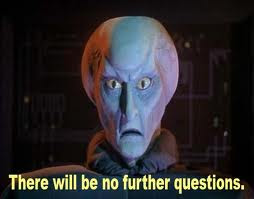 |
| Go Beyond the Resume! |
Related: How to Market Your Career
You already know that a good cover letter is short and to the point. Your work history should be briefly described in a sentence or two as part of a brief introduction. In another short paragraph you should describe an accomplishment that shows the contributions you can make. Then you should conclude with why you're interested in working for this company, in particular. And you should do it all while conveying your genuine interest and enthusiasm. Easy, right?
Beginning is the hardest part. And when you begin your cover letter, there's always the question of who to address it to. If you don't have a specific name and there weren't any instructions in the job description then don't address it to anyone. Just start by introducing yourself. Like this:
Hello, my name is Perfect Job Candidate and I'm interested in the Answer to All Your Problems position you have open.
I'm an experienced Answer to All Your Problems, having worked most recently for A Good Company where I was able to apply my expertise to further their business goals.
I increased A Good Company's sales by $Impressive Dollar Amount by discovering an untapped market. While attending a training/networking/meeting event I met a person from Another Company who was not one of our customers. While discussing the services A Good Company provides, person from Another Company mentioned a service they would find useful but that we didn't offer. I found that A Good Company could easily provide the service but wasn't due to a perceived lack of market. When Another Company was offered these services, they happily employed A Good Company resulting in an increase in sales and the acquisition of a new customer.
I'm very interested in working for Your Company because of something neat I read about you on your website/your reputation for doing something really well that I want to be part of. I'm impressed that you do what you do so well and would like to contribute my skills and expertise to further your goals.
I look forward to hearing from you.
Sincerely,
Perfect Job Candidate
Phone number
LinkedIn Profile (link)
Career Presentation Page (link)






























